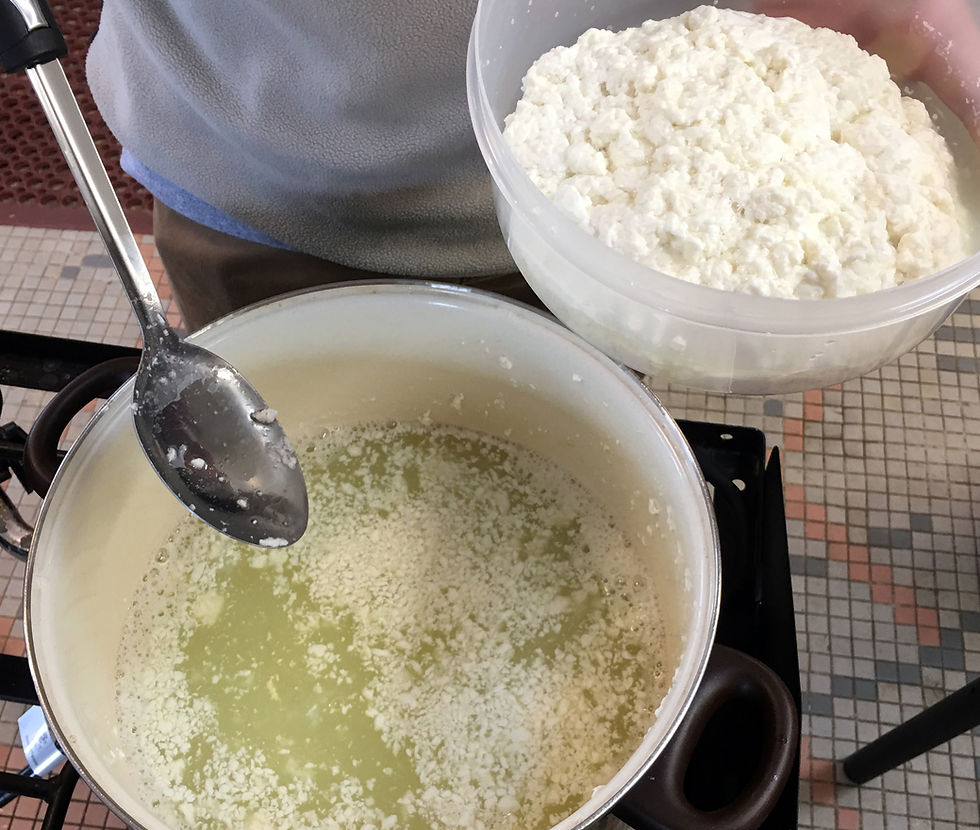Rest, Recreation, and Relaxation
- FamilyDisasterPrep

- Feb 27, 2018
- 4 min read
Updated: Mar 5, 2018
Imagination makes us aware of limitless possibilities. In one of her poems, Emily Bronte likens imagination to a constant companion, but I prefer to think of it as a built-in entertainment system.
Alexandra Adornetto

At first, it seem odd for a disaster preparedness blog to include a module on entertainment but rest, recreation and relaxation is a necessary component of survival. We in the modern technological world are used to devices, television, internet social media, going shopping, going to see a movie, etc. This is, by and large, our entertainment.
With a disaster, especially with a loss of electricity, many of the means that we normally use to entertain ourselves come to an end. Humans easily become bored. So, what means of entertainment can you keep on hand to prepare or devise in an emergency? Entertainment doesn't have to depend on electric current. Many methods exist from the time before the internet and even before electricity.
Naturally, our means of entertainment should include the interests, likes, and ages of those requiring entertainment. Here are just a few possibilities:
Introspection: Keeping a journal of your daily events and thoughts. As strange as it may sound, prior to widespread electricity, people would sit in a chair on the front porch and simply think about life. People used to sit on the front porch in small groups of friends and family and talk. Today, many find those moments through meditation or religious worship. In journaling, we might follow a lawyer's admonition, “Never say anything or write anything you would not say or read in an open court room.”
Writing: Organize paper and pencil for writing stories, thoughts, and notes.

Reading: Read good books, including textbooks, fiction, how-to books, and scriptures. Not only does reading broaden our world by learning new skills, studying topics of interest, and seeing how others people live, but our minds can be enlightened by new perspectives and higher level thinking.
Music: Learning a musical instrument, playing an instrument, and listening to music exercises parts of our brain that otherwise are less active. Even small instruments like kazoos and recorders provide entertainment. With preparation, you also can have battery-driven devices or USB mp3 players to play back pre-recorded music. Sing with songbooks, instrumental music, or from memory.
Art: Have a sketch pad handy for drawing with pens and pencils or art materials and tools for painting,
Photography: Have a camera or digital device to record the scene and events around you. We live in a world where devices are everywhere and very little is private anymore. Be cautious about what you record and what you choose to share with others.
Crafts and Needlework: Create something. Gather twigs, leaves, pinecones, paint, glitter, glue, string, and a few other items for nature crafts. Recycle old Christmas or note cards to make little boxes, collages, pinwheels, or 3D ornaments. Sew or crochet something new by machine or by hand, like a toy or blanket or scarf. Use your creativity to create something fun.
Hobbies: Start a collection. It can be anything from stamps or coins to vintage tools or military tactical gear. If you already have a collection of something, you might share it and, if applicable, demonstrate the uses for things you like or share stories about how you obtained the items for your collection.
Bake: Pull a few ingredients together to make cookies, candy, or popcorn balls. Cook a big meal together where everyone works together and enjoys the process. Make comfort foods.
Garden: Plant and grow something. Pull weeds. Take a hike in the yard or a park and find flowers or identify trees and herbs growing in the wild.
Games and Puzzles: Board games such as Monopoly, Risk, cards, checkers, chess, and so many others alleviate a lot of stress in a crisis. Outdoor games such as horseshoes, tag, and hide and seek provide necessary exercise and Vitamin D from sunlight. Jigsaw puzzles, mind-benders, and brain teaser riddles and puzzles can be a fun learning experience. Tell jokes and tell stories.
Movies: Have battery or rechargeable DVD players and a collection of favorite or new DVD movies. Download favorite public videos to keep and share.
Education as entertainment: With the right attitude and material, education can be entertainment. Have age-appropriate education material for children. Keep a library of books and DVDs on homesteading skills, gardening, raising animals, cooking, home repair, etc. Collect books and DVDs on first aid and good health practices. There is a wonderful company by the name of “The Great Courses” which, for a fee, offers instruction on hundreds of subjects.

Toys: Have age-appropriate toys and crafts for children and young people in the group can prevent boredom and discipline problems. Blocks, Legos, games, books, bubbles, jump ropes and other things we've mentioned already of specific interest could be essential in a crisis.
Play Acting. Adults, youth, and children can make up stories and act them out to relieve stress and also to share feelings. Keep some silly hats and fun props stashed away for a rainy day. There are lots of books of plays available and you may want to add one or two to your library.





Comments